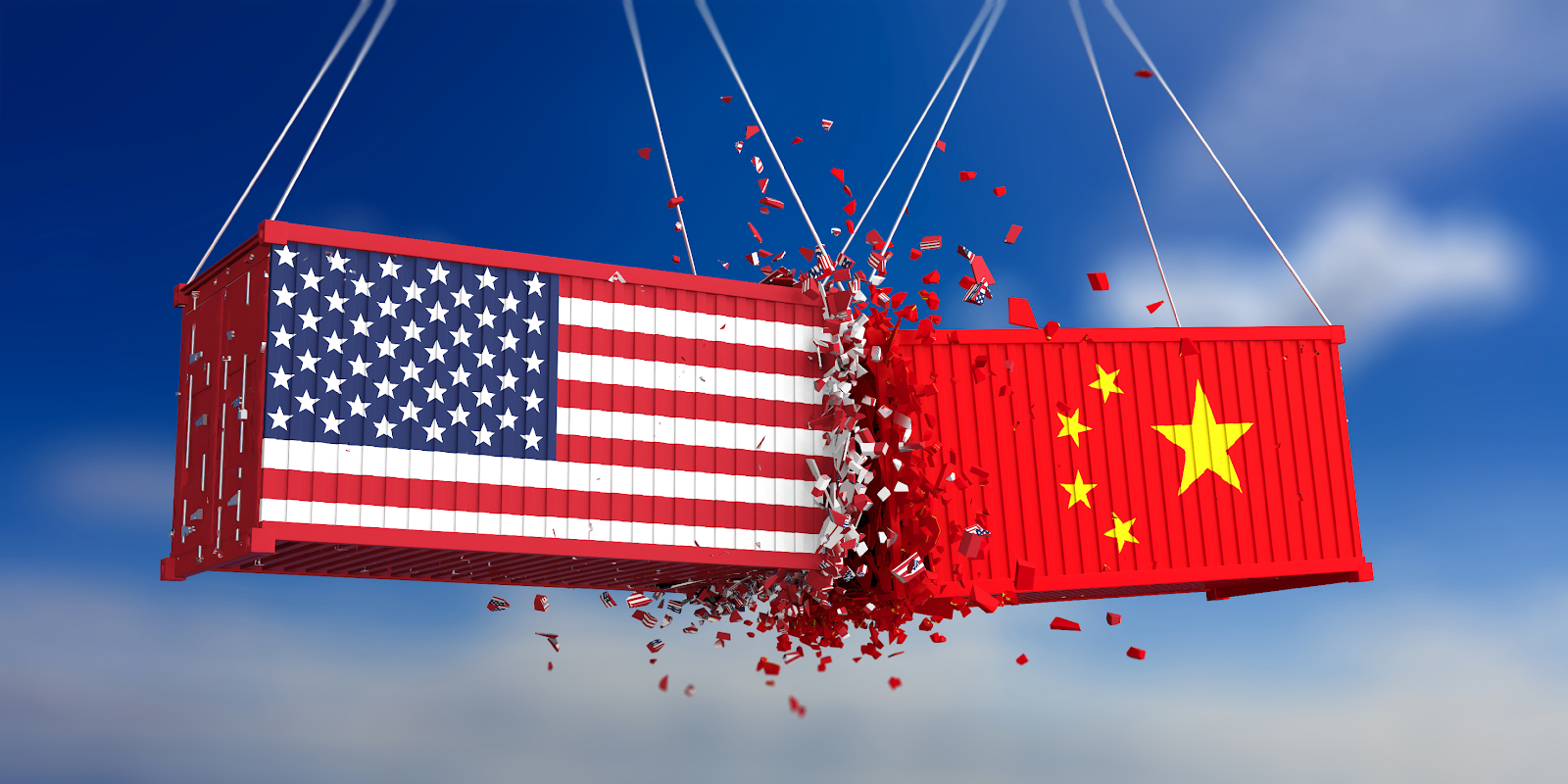American and European sanctions against Russia have largely dominated discussions surrounding sanctions against foreign entities in 2022 and 2023 in an effort to hobble its war of aggression in Ukraine. Behind the scenes, however, there has been a slew of other sanctions in operation as the United States quietly tries to curb Chinese technological advancement and military operations. These new US sanctions take aim at semiconductor and chip manufacturing in China, ostensibly in the name of stymying Chinese and other foreign threats to US national security. Recently, in light of heightened tensions between the US and China--spurred on by the discovery of a Chinese spy balloon and surveillance base in Cuba, to name a few highlights--these sanctions against the Chinese chip industry have garnered more and more public attention, especially in the wake of China's wave of new legislation introduced this summer.
The Chinese government has not stood by idly. China's new Foreign Relations Law provides a legal platform for China to wage a largely unrestricted economic countermovement against the crippling sanctions imposed by the US. Aided in no small part by the vague language of the legislation, China has already lashed out against US businesses like Lockheed Martin and Raytheon for their involvement in shipping weapons to Taiwan and Micron for alleged cybersecurity concerns, and further actions from Xi Jinping's administration are to be expected.
So how did it come to sanctions on computer chips and semiconductors and China's tenacious new economic responses? Signs point to the former Trump administration's restriction of Chinese technology giant Huawei in 2019 as the event that proved the gravity of the chip and semiconductor market. The restrictions against Huawei, introduced in 2019 and tightened over the next several months, deemed the company a risk to national security and, as a result, drastically reduced its ability to purchase American parts and technologies. Further tightening of the restrictions against the company subjected it in May of 2020 to the little known foreign direct product rule, which expanded US extraterritorial influence on trade by limiting the exchange of products that may not have ever been in the US, provided it was manufactured using American technology or software.
The kicker: nearly every semiconductor and chip maker on the planet uses technology and software that was somehow tied to the United States. This measure paved the way for further restrictions and sanctions against Chinese entities once it became clear just how effective it was in debilitating Huawei's business model. In 2020, for example, Huawei was the largest smartphone manufacturer in the world, ahead of popular brands such as Apple and Samsung. By 2022 Huawei's revenue had plummeted to 642.34 billion yuan from the whopping 891.37 billion yuan it had recorded as smartphone manufacturing chart-topper in 2020. Evidently, the sanctions on Huawei and its technology had an incredible impact on the company and opened the door for future, more ambitious sanctions from the Biden administration.
The simple answer: almost everything.
Semiconductors and computer chips are the lifeblood of modern technology and trade. They support the existence of credit cards, microwaves, smartphones, cars, ChatGPT, defense systems and more. Without them, there is almost no feasible way to remain at the forefront of any industry or even maintain a modern lifestyle. All of this is now at risk for China as it scrambles to respond to the Biden administration's sanctions, which target not just individual companies, but the entire industry in China. The sanctions, which were enacted unilaterally, are directed at the whole geographic area of China and went beyond simply barring sales of advanced chips (used in AI and other semiconductor projects) to Chinese companies to sharply limiting China's access to the materials needed to produce its own devices by prohibiting the sale of semiconductor manufacturing equipment.
Furthermore, these measures restrict third-country production using the American equipment and technology, and bans American persons from working on or supporting the Chinese production of advanced semiconductors. Most of the restrictions are imposed through licensing and take aim at three major categories of chip: logic chips: FinFET or superior, which corresponds to 16 nanometers (nm) or lower technology nodes; short-term memory (DRAM): 18 nm or lower; and long-term memory (NAND): 128 layers or higher. When these unilateral sanctions are paired with additional restrictions from the Netherlands and Japan, the two other powerhouses in the chip and semiconductor sector, China is left almost completely ostracized from chip and semiconductor technology and decades behind the cutting edge of technology.

Although China's response to the 2022 sanctions was not immediate, its new July legislation has hit the ground running- as demonstrated by its actions against Lockheed Martin, Raytheon, and Micron. In addition to targeting specific US businesses, it has also broadly limited the export of minerals, specifically gallium and germanium, which are used, among other things, for semiconductor production. Gallium, of which China produces 98% of the world's supply, is integral in many US defense technologies, and a metal shortage could prove extremely problematic for the US military moving forward. Some other banned minerals, like ingot, are also key for manufacturing solar panels and batteries, industries not directly related to the chip and semiconductor trade, but still important to US business. On the more intangible side, there is power simply in the passage of the law and the opaque language it employs. The legislation demonstrates China's commitment to taking a stand against the US sanctions. Moreover, the vague language allows the Chinese government a certain sense of unpredictability in its countermeasures as it has the freedom to determine what is and is not, for example, a threat to its security and thus a target for retribution.
For US business, the American sanctions and the Chinese response thereto are something of a double-edged sword.
On the one hand, sanctioning Chinese businesses allows American and Western businesses to thrive with less competition, as was the case when Huawei's smartphone output was curbed by Trump-era restrictions. Politically, too, US businesses can be more sure of their security and the protection of American national security interests. China's responses can also motivate the US to turn within itself and to other allies to bolster its market for manufacturing and technology.
On the other hand, the US faces economic consequences if it cannot replace China as a top trading partner in the field. By restricting sales of materials to China, the US, in turn, hurts its own immediate profit potential. Furthermore, just as the restrictions allow the US to explore more homegrown options, the same goes for China.
Sanctions motivate China to become increasingly independent and thus less susceptible to checks from the United States down the line. In addition to the tenuous position the sanctions put the market in, sanctions compliance also falls largely to individual businesses. US businesses must necessarily be aware of their trading partners, their personnel, and their products in order to ensure that they do not run afoul of the sanctions imposed upon China or aid in practices that may help Chinese businesses evade the sanctions imposed upon them.
It is important to vet your current supply chain for sanctions risk. There are severe penalties for violating the sanctions regulations established in the US and Europe. In addition, the region's increasingly complex geopolitical risk landscape makes it possible that foreign governments could target your business with sanctions. It is essential to understand your risk level to establish a robust risk mitigation plan.
Infortal Worldwide offers a full suite of due diligence services that can place your company in a much stronger position to move forward confidently. This includes vetting any potential partners for reputational and regulatory concerns. Our due diligence methodology also covers screening for sanctions risks.
Infortal Worldwide can help protect your company from unnecessary risk and avoid reputational damage in the marketplace.




